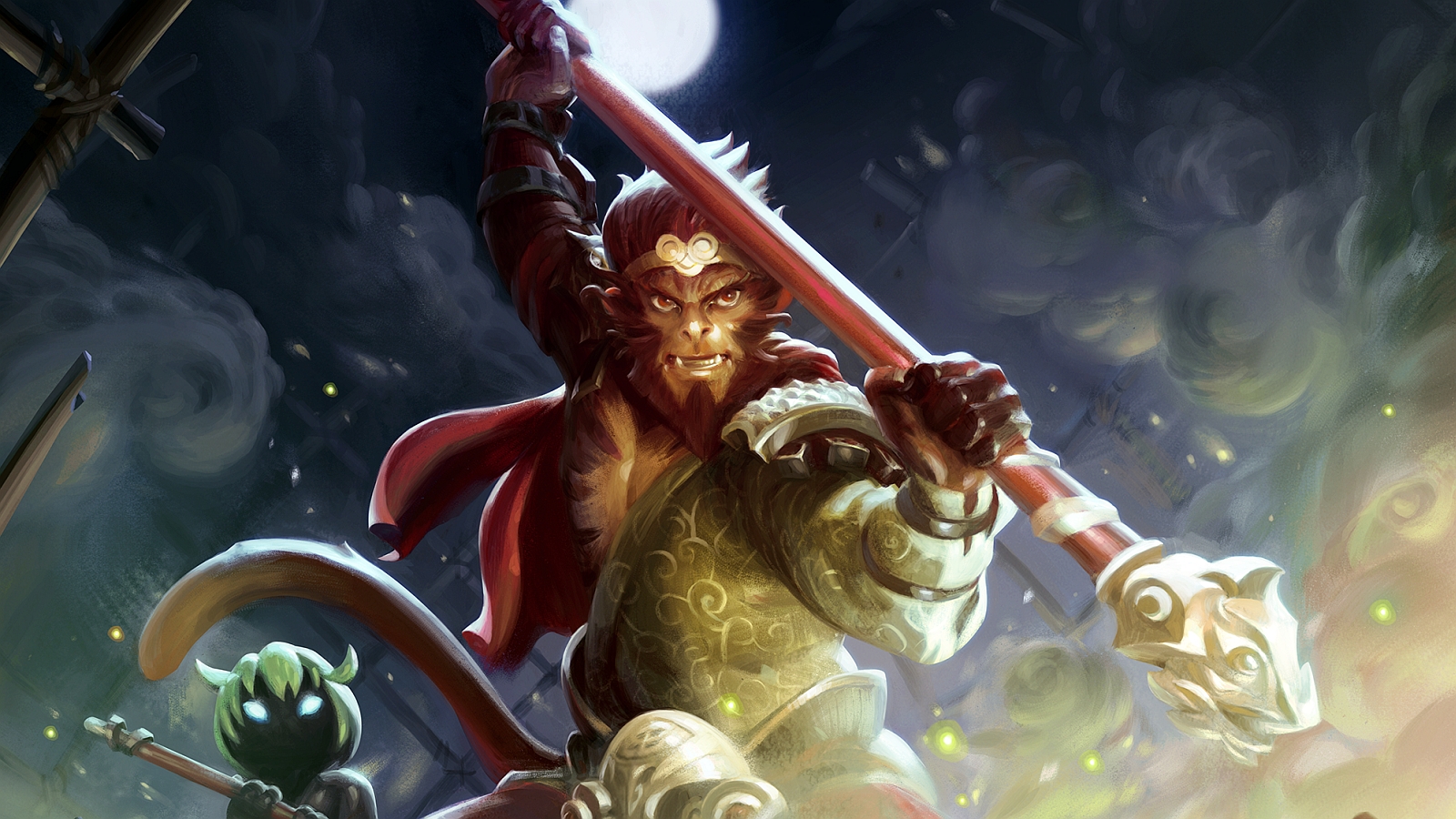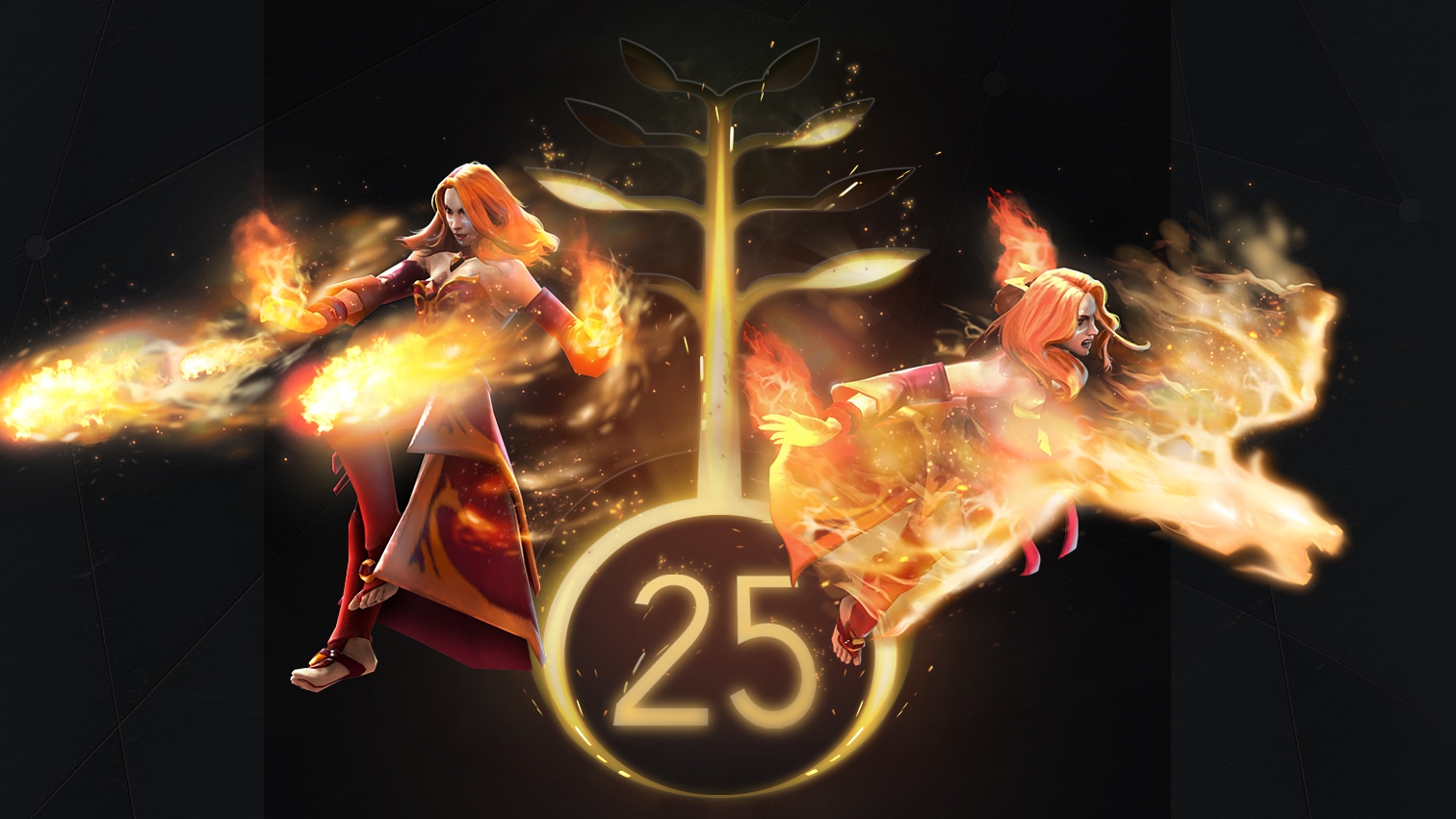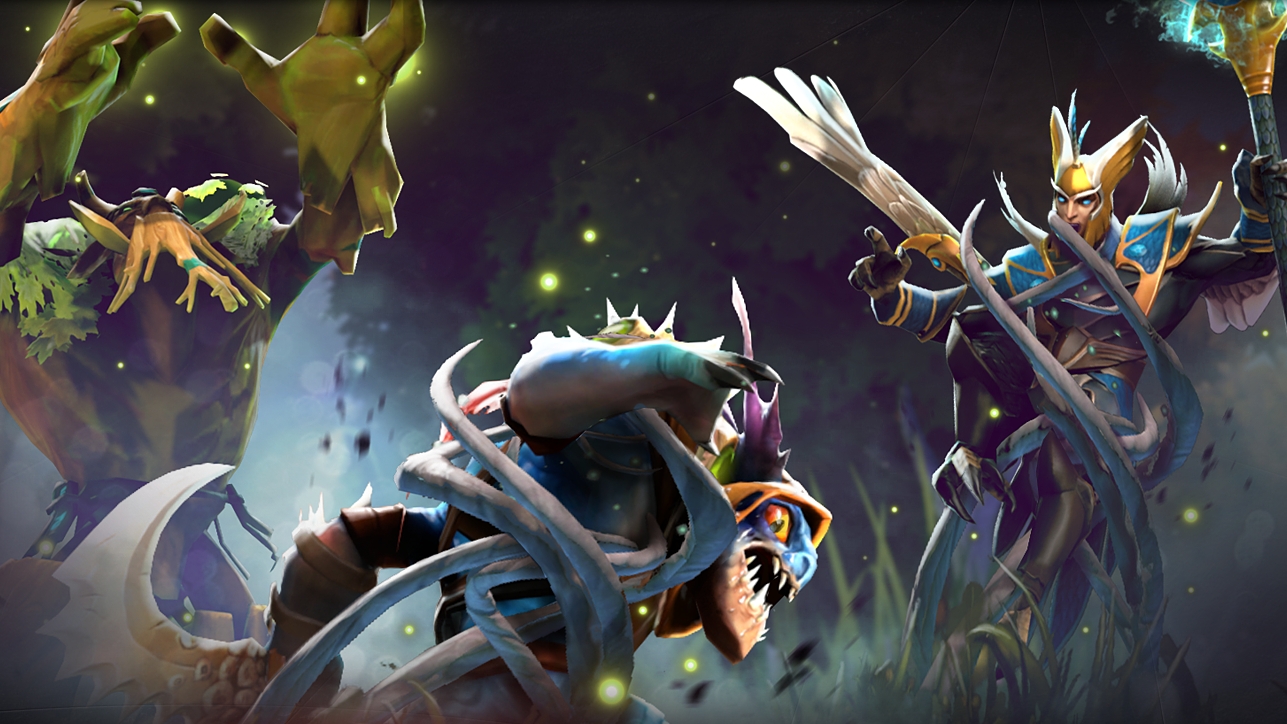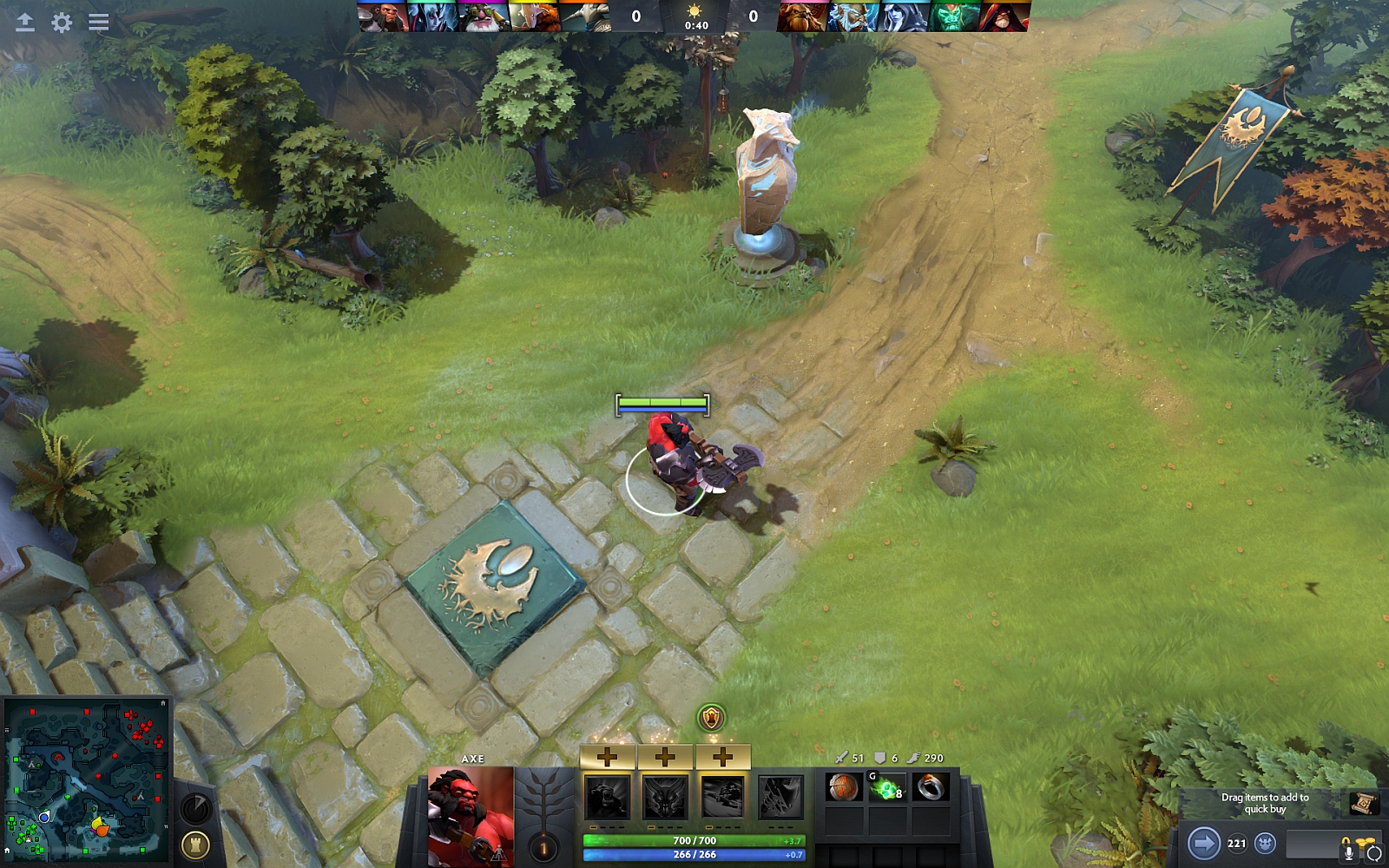Why Dota 2's 7.00 update is such a big deal
Valve pretty much made a sequel to a game with '2' in the title.

The idea of 'Dota 3' is a running joke in the Dota community, used whenever something changes so significantly that the game we knew might as well be dead. And because this is the Dota community, updates thought significant enough to qualify can be anything from shuffling Roshan slightly to the right to changing the size of the gold bounty granted by a kill when the level difference between the killer and victim is greater than the radius of the branch of a tree in the backyard of Icefrog's neighbour's physiotherapist yadda yadda yadda Dota Dota Dota.
This weekend's update, now live on the test server, is different. This might as well be Dota 3. And because Valve aren't allowed to use the number three, they're calling it Dota 2 7.00.
This is an epochal shift not only in Dota 2's history, but the history of arguably the most influential mod in the history of PC gaming
That '7' is significant in and of itself. If you caught the news in passing over the weekend you might have wondered why Dota players were losing their minds over a digit, but it's a big deal: DotA has been in version six-dot-something for more than 10 years.
After the original Warcraft 3 mod's emergence in 2004, it went through a period of rapid versioning under multiple stewards for a year or so. The shift from 5.84b to 6.00 in early 2005 marked the end of the Guinsoo era, with Icefrog stepping in starting with 6.02.
From then on, DotA crept forwards in small increments—reaching 6.69c in late 2010, the last patch prior to Valve's involvement. Development of the mod and Dota 2 continued in parallel from 6.70 onwards. I started playing in mid 2012, on version 6.74. Over the last four and a half years the game gradually reached a remarkable state of balance with 6.88. Everyone was excited (and trepidatious) about the changes to come with the 6.89 patch.

Which is why the announcement of version 7.00 is such a big deal. This is an epochal shift not only in Dota 2's history, but the history of arguably the most influential mod in the history of PC gaming. It's a sweeping modernisation of the game, from the interface to the map to the vital systems that power the most complicated competitive sandbox around.
Leveling stats is gone, replaced with a per-hero talent system that offers passive bonuses at levels 10, 15, 20 and 25. Where previously power spikes centered on key levels and the acquisition of items, now heroes have the opportunity to leap ahead of their opponents at more regular intervals.
Keep up to date with the most important stories and the best deals, as picked by the PC Gamer team.
Existing players have a lot to relearn when it comes to matchups
While the system seems similar to Heroes of the Storm on the surface, it's a very different creature when translated to Dota 2. This is a game that often boils down to successfully reading the relative power of two sets of characters and making strategic decisions on that basis. The addition of talents gives you something else to track, and allows for surprising late-game twists that weren't possible before.
I'll give you an example: I played Chaos Knight in my last game, facing a well-farmed enemy Juggernaut. It ran long but stayed relatively close, and after a long series of teamfights it was clear that Juggernaut was comfortable using Blade Fury to disengage from fights. He didn't account for one of CK's level 25 talents, however, which allows Reality Rift to pierce spell immunity—and this in turn allowed me to control Juggernaut in a vital late teamfight and shift momentum to my team.
Existing players have a lot to relearn when it comes to matchups, as the talent system has the potential to create a range of new counter-picks. I'd argue that this is good for new players too, as talents (unlike stats and the formulae they drive) are relatively easy to understand by reading them. And the fact that experienced players are having to relearn so much of the game helps to narrow the skill gap, at least for a short time.

Case in point: I got lost in a game of Dota 2 last night while navigating a map that I've spent several thousand hours fighting over. 7.00 overhauls the battlefield to an astonishing degree, relocating Roshan to the top of the river, moving every single neutral camp, adding some new ones, adding four (!) bounty rune spawns throughout both jungles, and changing every juke path. Thousands upon thousands of hours of accumulated map knowledge have been lost and must be reacquired, and every single guide to jungling, warding and roaming will need to be rewritten.
I've also felt lost within the new UI, which is the one area of this update that I suspect will see some changes in the next couple of weeks. Overall it's a positive change: cleaner and clearer in key areas, with more flexibility for future updates.
There's plenty that doesn't seem quite right, however, like the shop window concealing the kill feed on the right and the placement of the new 'enemy details' panel, which again fights against years upon years of deeply-ingrained player habit. We'll get used to it, though. After all, 'select enemy heroes to see their stuff because the RTS engine this is based on let you do that' is weird too.

I'm impressed by the changes to the pregame. After hitting 'accept' you're now taken to the match lobby near-instantly, which is a tragedy for anybody who was making a living from Dota 2 loading screens but great for everybody else. More tools to communicate strategic intent during the draft are very welcome, as is the ability to pre-buy starting items to get you out of the fountain faster. It's a welcome process of modernisation that doesn't make the game any less competitive. I also like the mad anime-style intro to each match, because it is silly.
It's funny that the most notable thing about this patch when it was announced—Monkey King, the first Dota 2-exclusive hero—has been so completely overshadowed by the massive changes elsewhere. Particularly because he is nuts. They've added a character that can climb trees, summon an army of monkeys, and run around pretending to be a banana, and this is the least interesting thing about the update. I don't know what to tell you; he's a new hero. Most players know how to deal with that. What they don't know how to do is deal with getting lost looking for Roshan.
I will say this, however. If you're worried that this new era of Dota 2 signals the end of the game's vital strangeness—a shift towards smooth focus-tested marketability—then Monkey King is a reminder that, at its heart, Dota 2 is still a game about really weird shit happening because of a decade of accreted rules and systems. To wit: earlier today I, a horseman of the apocalypse, helped my team find, isolate and kill a tricky monkey by eating a tree with some magic beans.
It's still Dota, everybody.
Joining in 2011, Chris made his start with PC Gamer turning beautiful trees into magazines, first as a writer and later as deputy editor. Once PCG's reluctant MMO champion , his discovery of Dota 2 in 2012 led him to much darker, stranger places. In 2015, Chris became the editor of PC Gamer Pro, overseeing our online coverage of competitive gaming and esports. He left in 2017, and can be now found making games and recording the Crate & Crowbar podcast.


